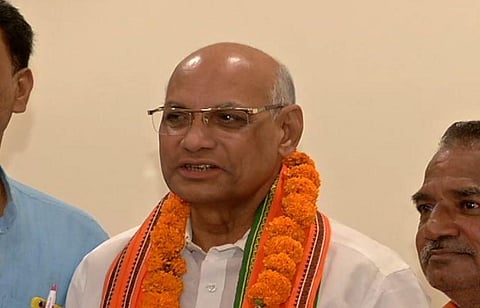

RANCHI: In a major blow to Hemant Soren Government, Governor Ramesh Bais has returned 1932-Khatian based Local Policy Bill-2022 passed by Jharkhand Assembly asking the government to review its legality so that it is in accordance with the Constitution and in orders passed by the Supreme Court.
The bill passed by the Jharkhand Assembly was sent to the Governor for his approval, according to which, a person having domicile of Jharkhand shall mean a person who is an Indian citizen and resides within the territorial and geographical limits of Jharkhand and his or her ancestor’s name is recorded in the khatian (land records) of 1932 or earlier.
It also mentioned that only local persons, who have been empowered under this Act, will be eligible for appointment against class-3 and 4 of the state. Notably, an all party delegation led by Chief Minister Hemant Soren had met Governor Ramesh Bais on December 20 to press for his early consent on the twin bills — notifying 1932 as the cut-off-year for state domicile and 27 percent reservation to OBCs — so that the State Government could persuade the Centre to include the twin bills in the Ninth Schedule of the Constitution.
The release further stated that clear guidelines have been issued by the Constitutional Bench of the Supreme Court on the subject of giving 100 percent reservation in employment to the local people in scheduled areas.
The release added that it may be noted that it was also clarified by the Law Department that the provisions of the Bill in question are contrary to the Constitution and the orders of the Supreme Court and it has been said that such provision is contrary to certain judgments passed by the Supreme Court and the Jharkhand High Court. At the same time, such a provision clearly appears to be inconsistent and having adverse effect on the fundamental rights provided in Article 14, 15, 16 (2) of Part III of the Indian Constitution.